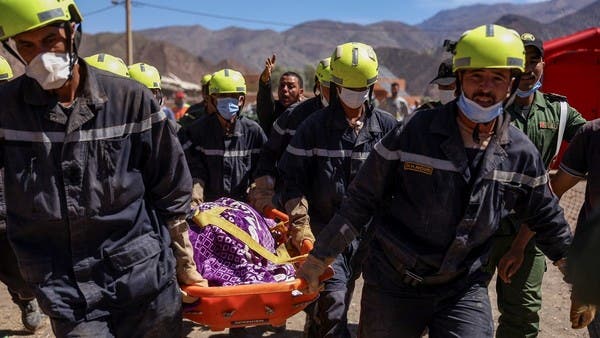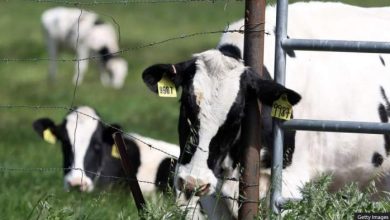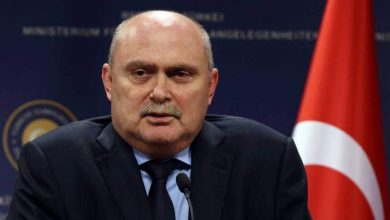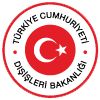News

[ad_1]
Rescuers raced against time on Monday to find survivors in the rubble more than 48 hours after Morocco’s deadliest earthquake in over six decades, with nearly 2,500 killed in a disaster that devastated villages in the High Atlas Mountains.
Search teams from Spain, Britain and Qatar were joining efforts to find survivors of the 6.8 magnitude quake that struck late on Friday night, 72 km (45 miles) southwest of Marrakech.
For all the latest headlines, follow our Google News channel online or via the app.
Many survivors spent a third night outside, their homes destroyed or rendered unsafe. The death toll has climbed to 2,497 with 2,476 people injured, the state news agency reported on Monday.
In Imgdal, a village about 75 km south of Marrakech, women and children huddled early on Wednesday morning under makeshift tents set up along the road and next to damaged buildings. Some gathered around an open fire. Further south, a car stood crushed by boulders that had fallen from the cliff.
In the village of Tafeghaghte, Hamid ben Henna described how his eight-year-old son died under wreckage after he had gone to fetch a knife from the kitchen to cut a melon as the family were having their evening meal. The rest of the family survived.
With much of the quake zone in hard-to-reach areas, the full impact has yet to emerge. The authorities have not issued any estimates for the number of people still missing.
Roads blocked or obstructed by dislodged rocks have made it harder to access the hardest hit locations.
On a road near the town of Adassil, not far from the epicenter, rescue worker Ayman Koait was trying to clear rockfalls that were blocking traffic.
“There are worse roads further up that are still blocked and we’re trying to open them too,” he said as vans loaded with aid squeezed along a narrow cleared track.
People were salvaging possessions from the ruins of their homes, some describing desperate scenes as they dug with their bare hands to find relatives.
Many structures crumbled easily, including ubiquitous, traditional mud brick, stone and rough wood houses, one of the picturesque features that have made the High Atlas a magnet for tourists for generations.
“It’s difficult to pull people out alive because most of the walls and ceilings turned to earthen rubble when they fell, burying whoever was inside without leaving air space,” said a military worker, asking not to be named because of army rules.
The harm done to Morocco’s cultural heritage has been emerging gradually. Buildings in Marrakech old city, a UNESCO World Heritage Site, were damaged. The quake also reportedly did major damage to the historically significant 12th-century Tinmel Mosque in a remote mountain area closer to the epicenter.
It was the North African country’s deadliest earthquake since 1960, when a tremor was estimated to have killed at least 12,000 people, and the most powerful since at least 1900, according to the US Geological Survey.
Aid comes in
Survivors struggling to find shelter and supplies have voiced criticism of what they have described as an initially slow government response.
Morocco has deployed the army and has said it is reinforcing search-and-rescue teams, providing drinking water and distributing food, tents and blankets.
Neither King Mohammed VI nor Prime Minister Aziz Akhannouch have addressed the nation since the disaster.
In a televised statement on Sunday, government spokesperson Mustapha Baytas said every effort was being made on the ground.
He added that King Mohammed had instructed the prime minister to meet on Monday with a ministerial committee that is developing emergency plans, including for home reconstruction.
Morocco had accepted offers of aid from Spain, Qatar, Britain and the United Arab Emirates.
State TV said the government had assessed aid needs and considered the importance of coordinating relief efforts before accepting help, and that it might accept relief offers from other countries and would work to coordinate them if needed.
Spain and Britain had sent search-and-rescue specialists with sniffer dogs, while Qatar said on Sunday its search-and-rescue team had departed for Morocco.
The European Union said it was releasing an initial 1 million euros ($1.07 million) to non-governmental aid organizations already in Morocco, and was in contact with the Moroccan authorities to offer full EU civil protection assistance, should it require it.
Both France and Germany played down the significance of Morocco not immediately taking them up on their offers of aid.
Germany said on Monday it saw no indication that Morocco’s decision was political as it knew from its own experience with deadly flooding in 2021 that aid coordination was important to avoid rescuers impeding each other.
France said on Sunday it stood ready to help whenever Morocco made a formal request, and any controversy on the issue was “misplaced.”
Paris and Rabat have had a difficult relationship in recent years notably over the issue of Western Sahara, a disputed territory that Morocco wants France to recognize as Moroccan. Morocco has not had an ambassador in Paris since January.
Read more:
Rescuers race to find survivors over 48 hours after Morocco quake
France says controversy over Morocco aid misplaced
Morocco survivors seek aid as earthquake toll passes 2,100
[ad_2]
Source link





